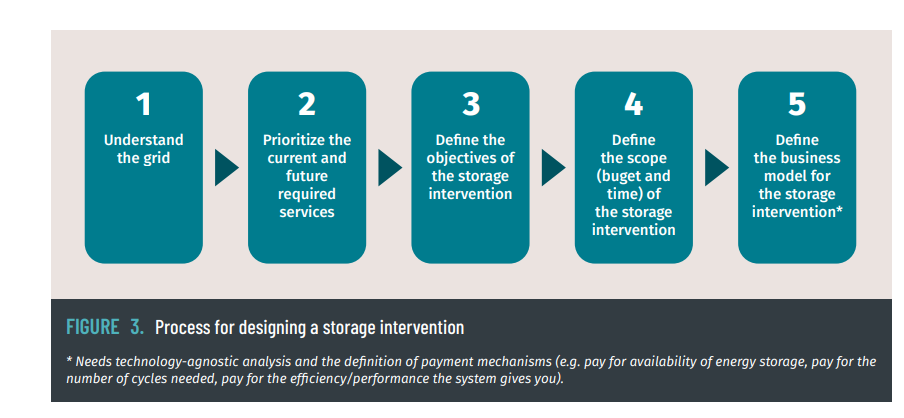We welcome your feedback
Your input matters. Help us improve the CIF website by completing a brief survey. It will only take two minutes and will support our ongoing efforts to serve you better.
When the Climate Investment Funds (CIF) launched the Global Energy Storage Program (GESP) in 2020, it was the first-of its kind and the world’s largest multilateral funding mechanism for energy storage. The program invested more than $430 million in 21 projects and mobilized an additional $3 billion in public and private investments. To date, CIF has allocated more than $1 billion for energy storage.
But, from the outset, GESP aimed to be more than a funding window under CIF’s Clean Technology Fund (CTF). In expanding on its aim to support developing countries on innovation and transformation of their energy systems, the program added a learning component that builds knowledge and exchanges expertise for countries looking to develop their energy storage capabilities.
Now, a new paper sets out the approach and a few lessons from the GESP Learning Platform. The paper, entitled “The Global Energy Storage Program (GESP) Learning Platform: Sharing Knowledge to Transform Energy Systems,” captures key insights generated from virtual workshops since the platform’s launch in 2021 at the height of the Covid-19 pandemic.
Because the current understanding of energy storage is based on the experiences drawn from developed countries, the GESP Learning Platform set itself apart by creating a learning model specifically focused on developing countries where markets and frameworks may be less advanced. The platform encourages participants to share, examine, and expand on lessons on energy storage, particularly because of the varied contexts in which they operate. And in bringing together diverse stakeholders – including governments, multilateral development banks, and industry experts – the platform can find common ground on the energy storage knowledge needs and expertise.
The new paper lifts out lessons and insights from various virtual discussions, including a look at emerging technologies, their application, and the challenges and opportunities of deploying large-scale energy storage projects. It also highlights discussions on the design and delivery of the storage process, the financing required, and defining a business model for a storage intervention, as the image below reflects.

The main objective of the GESP Learning Platform is to provide a collaborative forum for learning on energy storage technologies and to highlight how CIF’s concessional finance can support early-stage storage operations in developing countries. And as the paper sets out, the GESP Learning Platform occupies a unique place in the energy storage sector: by building an inclusive and stimulating space for dialogue, collaborative brainstorming, social interaction, and sharing.
Your input matters. Help us improve the CIF website by completing a brief survey. It will only take two minutes and will support our ongoing efforts to serve you better.